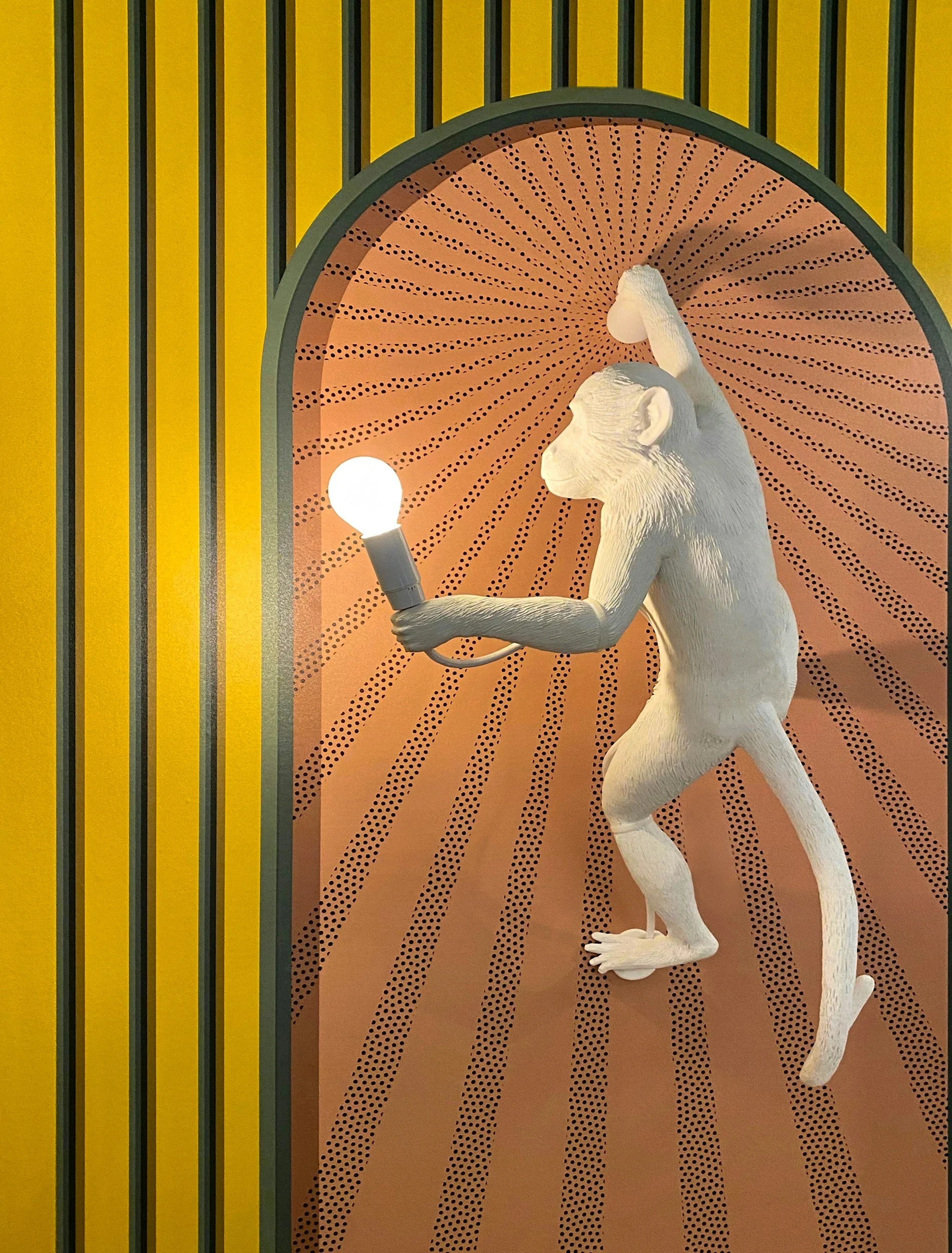
Welcome to my Blog
Thank you for stopping by. This space is where I share research, reflections, and practical tools drawn from my experience as a marriage and family therapist with an international practice.
I write about what happens to desire, attachment, and meaning once the early myths stop working.
Are you a couple looking for clarity? A professional curious about the science of relationships? Or simply someone interested in how love and resilience work? I’m glad you’ve found your way here. I can help with that. I’m accepting new clients, and this blog is for the benefit of all my gentle readers.
Each post is written with one goal in mind: to help you better understand yourself, your partner, and the hidden dynamics that shape human connection.
Grab a coffee (or a notebook), explore what speaks to you, and take what’s useful back into your life and relationships.
And if a post sparks a question, or makes you realize you could use more support, I’d love to hear from you. Let’s explore the scope of work you’d like to do together.
Be Well, Stay Kind, and Godspeed.
~Daniel
P.S.
Feel free to explore the categories below to find past blog posts on the topics that matter most to you. If you’re curious about attachment, navigating conflict, or strengthening intimacy, these archives are a great way to dive deeper into the research and insights that I’ve been sharing for years.
- Attachment Issues
- Coronavirus
- Couples Therapy
- Extramarital Affairs
- Family Life and Parenting
- How to Fight Fair
- Inlaws and Extended Families
- Intercultural Relationships
- Marriage and Mental Health
- Married Life & Intimate Relationships
- Neurodiverse Couples
- Separation & Divorce
- Signs of Trouble
- Social Media and Relationships
- What Happy Couples Know
Neurodiverse Courtship: Our First Date Was a Google Doc
Picture this:
Instead of picking a restaurant no one likes and faking small talk until your soul leaks out your ears, you receive a link:
"Shared Google Doc: First Date Itinerary and Communication Preferences."
Romance, in its purest 2025 form.
Welcome to Neurodiverse Courtship —
where love is planned, negotiated, sensory-friendly, and deliciously literal.
Not awkward.
Not cold.
Just different.
Maybe better.
What Is Neurodiverse Courtship?
The Masking Dilemma: How Job Interviews Push Autistic Candidates Into Disconnection
If you’ve ever spent a job interview sweating through your nicest blazer, straining to remember the "right" amount of eye contact, and calculating the microcalories of every smile, you’ve experienced—briefly—what many autistic adults endure every time they apply for a job.
Except for them, it isn’t one uncomfortable afternoon.
It’s a career-long performance.
The Interview Illusion: Why Autistic Adults Get Passed Over—and What Employers Still Don’t Get
A handshake. A smile. A little banter about traffic or your favorite coffee shop. For many employers, this is the sacred opening rite of a job interview. But for autistic adults, it’s often the start of a silent dismissal.
First impressions, we’re told, are everything.
They determine who gets hired, who gets promoted, and—let’s be honest—who gets invited to lunch.
Does Alexithymia, Not Autism, Drive Emotion Recognition Challenges? A Nuanced Look
A new study published in Development and Psychopathology (Standiford & Hsu, 2025) offers a surprising twist on a long-assumed narrative: that difficulty reading emotional expressions—a hallmark often associated with autism—may actually owe more to alexithymia than to autistic traits themselves.
It’s a sharp, compelling insight. But like most compelling insights, it risks being a little too neat.
Let’s dive into what they found, why it matters, and where we need to tread carefully.
Asynchronous Repair: When Timing Is the Love Language
Let’s shatter the myth: not all couples resolve arguments before the dishwasher cycle ends. Asynchronous repair is a relationship strategy—often emerging from neurodivergent, trauma-aware partnerships—where one partner needs immediate comfort and the other needs to take a walk, or possibly a nap, before offering any semblance of coherence.
It’s not neglect. It’s neurobiology.
This concept, once fringe, is now finding traction across Reddit, TikTok therapy corners, and digital couples’ therapy sessions. Especially among ADHD and autistic partners, asynchronous repair reframes silence not as disconnection, but as regulation.
As Porges’ (2011) polyvagal theory explains, some nervous systems short-circuit in real-time conflict. They need to downshift, not debate.
Are We Misreading Neurodiversity for Narcissism…Again?
In the ongoing saga of “Why is this person so weird and hard to be around?”, psychologists have once again trained their lenses on narcissists.
And fair enough—narcissism is often an elegant explanation for behavior that feels disorienting, self-centered, or socially clumsy.
But what if that elegance is a bit too convenient?
What if this body of research—while meticulously designed and statistically sound—is accidentally mistaking neurodivergent misattunement for narcissistic malevolence?
Let’s ask, as any decent therapist or slightly paranoid AI should: Are we conflating narcissism with neurodiversity… again?
Neurodivergent Rest: You’re Not Lazy, You’re Depleted. How Fatigue Has Been Misdiagnosed as Failure
Let’s say it plainly:
If you are neurodivergent, chronically ill, trauma-wired, or merely a soul surviving capitalism in a glitchy body…
You are not lazy.
You are depleted.
And there’s a difference.
Laziness implies a moral shortcoming—an absence of effort, discipline, will. Depletion is physiological. Depletion is environmental. Depletion is earned through contortion.
And the cure isn’t more shame or another productivity app. The cure is redefinition—of rest, of self-worth, of what it means to pause.
Hyperfocus Episodes: Where Passion Becomes Praxis and You Forget to Pee
If attention is currency, then hyperfocus is a black-market economy.
It’s unpredictable, obsessive, and gloriously inefficient in capitalist terms—which is precisely why it’s so beloved in neurodivergent circles and so meme-worthy online.
But beneath the jokes about owl taxonomy and 3AM Wikipedia spirals lies a neurological rebellion: a rejection of the assembly-line model of productivity.
And the science? It’s catching up.
ADHD Task Paralysis Isn’t Laziness: It’s Executive Function Gridlock in a Capitalist Hellscape
There you are, sitting at your desk, staring at the three-item to-do list like it’s the Dead Sea Scrolls.
You know the first task is “Email James.”
Just two words. You understand the task. You want to do the task. And yet—your hand hovers near the keyboard like a stunned starfish.
This is not laziness.
This is task paralysis: a physiological, neurological, and emotional freeze that is frequently misdiagnosed as sloth by bosses, spouses, and that Calvinist taskmaster in your own mind.
RFK Jr. vs. Autism: A Cautionary Tale
Robert F. Kennedy Jr. wandered out of a Whole Foods conspiracy subreddit and directly into the national spotlight, dragging behind him a tangled ball of half-read abstracts, mercury panic, and the kind of statistical illiteracy that would make a 7th grade math teacher weep into her TI-83.
In his latest crusade against science, he’s resurrected the moldy myth that vaccines cause autism—a claim so thoroughly debunked it now loiters in the same intellectual graveyard as phrenology, bloodletting, trickle-down economics, and New Coke.
But RFK, ever the tragic understudy in the play of American Camelot, insists he’s just asking questions—loudly, confidently, and with all the nuance of a leaf blower in a library.
So buckle up. We’re going spelunking in the dark caverns of medical misinformation, where Bobby’s torch is powered entirely by neuro-normative bias.
The Girl Who Hid From Mirrors
Her name — well, not her name, not the one they gave her at the thousand-dollar-a-plate fundraiser where they snickered sotto voce about her trust fund like a debutante beheading — but the name she used in the small circles of the self-aware and socially anxious — was Fiona.
Fiona had red hair like a warning sign. Like an old God’s middle finger. It flamed around her face like a Roman candle going off in slow motion.
She painted large, frightening canvases.
Wrote poems so intimate you felt indecent reading them.
And she had money. Enough to never work. Enough to flee any room the moment someone looked too long. Or smiled too hard. Or asked her, gently, “What do you do?”
And that was the rub. Fiona didn’t want to be looked at.
She wanted to be seen — but appropriately.
With the right kind of respect, the kind you reserve for tragic statues or rare birds or the last cigarette in the pack. And if you couldn’t manage that? She’d rather disappear. Into the garden. Into the bathtub. Into a painter’s smock so large it could qualify as an anti-espionage device.
ADHD, Rejection Sensitivity, and the Spotlight Effect on Steroids
People with ADHD face a different, but equally potent, variation of this. Many experience rejection sensitivity dysphoria (RSD) — a term popularized by Dr. William Dodson to describe the exquisitely painful emotional reaction to perceived criticism or social judgment.
It’s not an official DSM diagnosis, but it shows up in clinics, relationships, and therapy rooms every day.
Where the spotlight effect makes a neurotypical person slightly self-conscious, RSD says: Everyone saw me mess up, they now hate me, and I can never show my face again. In essence, it's the spotlight effect with gasoline poured on it.
And this becomes even more complex when you factor in emotional dysregulation, a common trait in both ADHD and autism. The fear of being seen making a mistake — or worse, being too much — can lead to avoidance, masking, people-pleasing, and burnout. These aren’t quirks. These are survival strategies.












